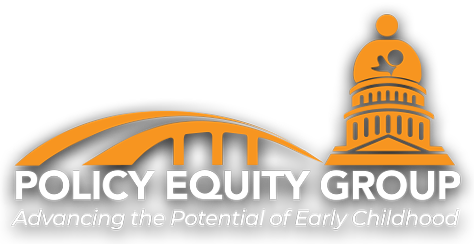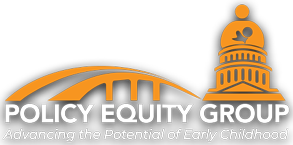Who We Are
Perhaps the best advice we received when starting our organization was: “You have to know your why.” Everyone should have a core story that drives them. We wanted to share ours.
Jenna Rhoads
I can still picture Sunday mornings with my family as a young kid, the air filled with warm spiced pancakes and in the background, the news. From a young age, I had a deep fascination with the world of politics. With my toy blocks, I would set up my anchor desk and pretend to be a political journalist, living my dream.
My unique interest only blossomed as I grew. Though my early childhood was spent in a foggy midsize town off the coast of central California, at eight years old we moved to quintessential rural America in northeast Oregon. At the time, I didn’t realize the divide in education and opportunities that occurs in a place like this.
By middle school, my fascination turned into a belief system that I still hold today. Policy is one of the best ways to help people. When the local sawmill shut down during the Great Recession and roughly 5,000 people became unemployed overnight, I watched as my friends and their families moved away. In a few short months, my dad shut down his small business. I realized the impact—both positive and negative—that our country and state’s policies had on our lives. We left this rural town for booming Bozeman, Montana. Unlike rural Oregon, Bozeman was filled with affluence, reflected in my new school building with its shiny TV monitors in the cafeteria and sparkling bright red metal lockers. With the wealth in this part of the state, the schools were also better than I had ever experienced, enough so that they were nationally ranked. I was immersed in a school with options like college courses and a swath of sports and extracurriculars—all choices I never had before.

As a senior in high school, my teachers noticed and encouraged my fascination with policy — enough in fact that my government teacher recommended me to the page program during Montana’s legislative session. Here, I saw policy in action. One night, as the clock hands approached midnight, I was reenergized (while other pages and legislators were not nearly as excited to still be there). I knew what this meant for me—I wanted to be a part of shaping policies that have the ability to set us all on new courses. I quickly declared my incoming major at Montana State University in political science, concentrating in policy and analysis.
During my college years, my fascination became linked to specific policy areas. In courses like the Politics of Food and Hunger and Sustainable Food Systems, I saw the link that childhood nutrition policy had on our long-term health, and how these policies can set us up for success or failure as adults.
Reflecting now, I grew up to be the person I am today largely because of the places I have lived, with their mixed bags of opportunities. Yet, as someone working in early childhood policy, I acknowledge that my parents and teachers played a pivotal role in my foundation—a foundation built on hope, caring for others, and a credence that we can help one another when we support equitable policies that uplift us all.

